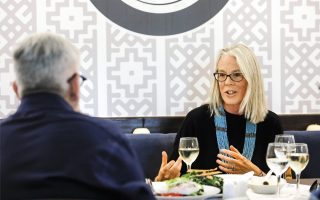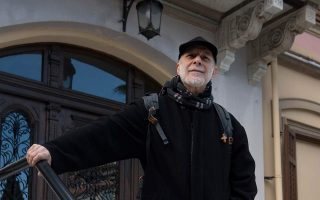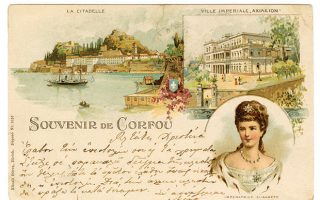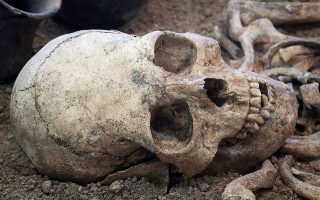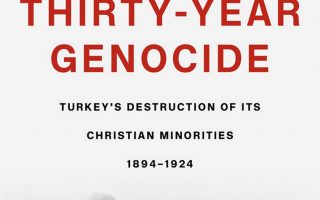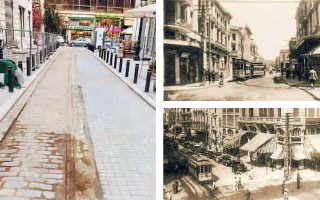Roderick Beaton: Greece is a ‘work in progress’
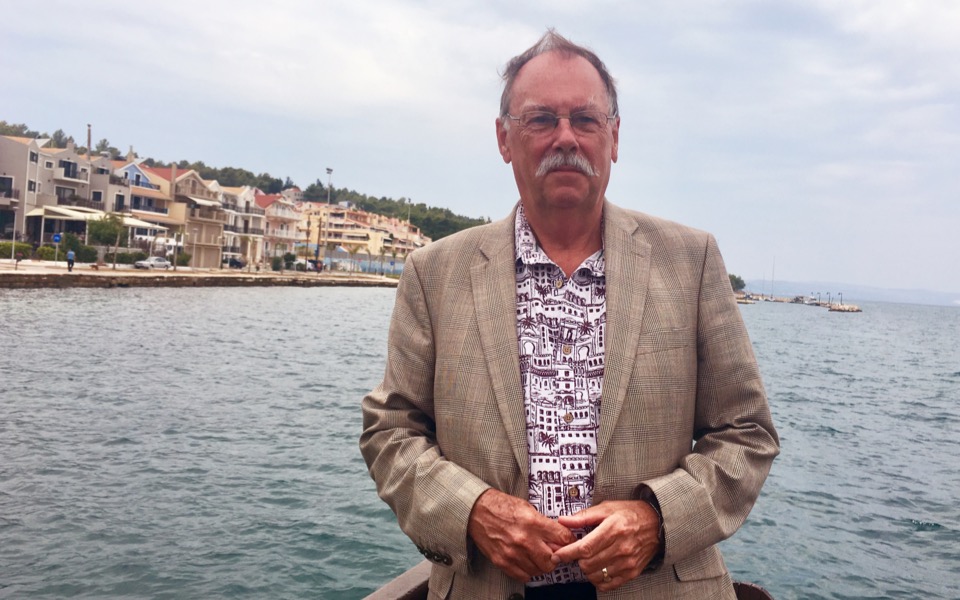
With two cruise liners anchored in the port of Argostoli, the streets of Kefalonia’s capital were packed with tourists. “Thankfully it’s a bit quieter here,” Professor Roderick Beaton said as we walked into a seaside restaurant on the Ionian island where he was on holiday with his wife.
Our meeting came just prior to his return to Athens on September 9, where he was bestowed the medal of Commander of the Order of Honor by Greek President Prokopis Pavlopoulos.
“It is the greatest honor of my life and I feel incredibly moved by it,” he said.
Emeritus Koraes professor of Modern Greek and Byzantine history, language and literature at King College London’s Department of Classics and the Center for Hellenic Studies, the respected 67-year-old British academic first came to Greece with his parents in the 1960s at the age of 14.
“I felt an instant sense of familiarity, as though I belonged in this beautiful place. I was pleasantly surprised by the people’s hospitality and generosity: Every time we stopped at a village, the locals would give us something, usually fruit and vegetables from their garden.”
Beaton kept traveling to Greece as he got older and his first time in Kefalonia was in 1973. “I was a student, just starting to learn the language, and some people regarded me with suspicion, wondering about my motives. I get it; there was a lot of talk about agents, spies and foreign provocateurs during the junta,” he said.
His ties with Greece grew stronger with the years. “Year by year, I saw it becoming a more European country – in contrast to my own country, which has, unfortunately, gone in the opposite direction. I think that most of the important changes took place in the 1980s, both in terms of growth, which was impressive, but also in the people’s habits. At first, for example, Greek friends who wanted to treat us almost always invited us to their homes, where they’d put out a huge spread of goodies and stuff us until we dropped. Hospitality gradually moved mainly to restaurants, as is the case in London or Paris, but with the same generosity of course,” says Beaton.
“There is one thing, however, that will never change: Greeks will always ‘belong’ to their family, to kin and country. Just as it was in ancient times, the community is everything to you, like a bee colony. The Greek Orthodox faith has probably played a role in this, as community is one of its ideals. I was, therefore, not surprised by the admittedly touching solidarity displayed by this society to vulnerable members of the population, but also to the refugees, despite the turmoil of the crisis and the enormous pressure you were under.”
I ask him to comment on July’s general election in Greece and on the new New Democracy government. “I don’t really know [Prime Minister] Kyriakos Mitsotakis and haven’t seen enough of him to draw any safe conclusions,” said Beaton.
“What I am particularly pleased about is that Greeks aren’t straying from the center of the political spectrum: The previous government was center-left and this one is center-right. The pendulum swings both ways, but ends up in the center, unlike in the UK, in the US and even in Italy, where it swings dangerously close to the extremes.
“What does worry me on an international level is the increasing number of people coming to power who simply cash in on their popularity for votes and don’t always have a sense of responsibility, like comedians and – I’m sorry to say – journalists. This was the case with [British Prime Minister] Boris Johnson, who became a television persona. He’s a joke! But he speaks Ancient Greek, at least he knows a few phrases which, along with a few Latin sayings, he weaves into his comedy routine.”
Nevertheless, Beaton says he is still optimistic, mainly as a result of the hope he gets from countries like Greece, which are “loyal to the European vision.”
“We need a Europe that is united and strong, that can hold its own against [Donald] Trump’s America, [Vladimir] Putin’s Russia and China. And I can’t but mention Turkey, which has revived the sultanate. Because [President Recep Tayyip] Erodgan certainly sees himself as a sultan – with absolute power and geopolitical ambitions,” says Beaton.
In 2015, Beaton decided to write “Greece: Biography of a Modern Nation,” published in March by Allen Lane. His approach, of course, is not that of the historian. He does not present the big events, nor does he address the big decisions that determined the country’s course or rely on its ancient past. “Greece to me is the present and the future. It’s a work in progress. I was interested in exploring its personality,” he stressed.
“You will find poetry and music in the pages of the book, but also a few ‘unknown’ heroes who had a part in shaping this modern country and who have been done an injustice by history,” said Beaton, who also wrote “George Seferis: Waiting for the Angel” in 2003 (Yale), which earned him the 2004 Runciman Award.
He cites the example of Alexandros Mavrokordatos, a prominent diplomat and rival of General Theodoros Kolokotronis. “He was quite brilliant – he spoke eight languages – and a patriot to the core. Harilaos Trikoupis and Theodoros Diligiannis were also very important, while I’ve started growing fond of King George I. His role has been overlooked, yet he was capable and spent 50 years trying to establish a constitutional monarchy in Greece. He didn’t have Otto’s foibles or those of the other kings after him.”
The upcoming bicentennial of the Greek War of Independence in 2021 will pose a dilemma for the country, according to Beaton.
“Will you limit yourself to reproducing the same old stale beliefs or will you proceed with a brave and meaningful review of the facts and what they mean, of your history more generally?” he asked.
“It is an opportunity, after the recent trauma of the crisis, to re-evaluate the causes of the revolution, how it evolved and what it resulted in. After all, the Greece of loans and debts emerged from the war of independence. So, will you take the leap or settle for living with your myths? It is not an easy decision. People cannot live without myths and mythology was your invention, your legacy to humanity.”
Back on the subject of important Greeks, Beaton admits that he feels a bit bad about “not really liking” the namesake of the chair he held at King’s College from 1988 to 2008.
Adamantios Koraes, said Beaton, “was very prolific but tended to repetition; he was also quite dry as a man and too nationalistic for my taste.”
There is nothing, however, he regrets about his career.
“I would never have imagined, or even dreamed, when I started on this academic trajectory that I would be here one day, being awarded by the president of the Greek Republic,” said Beaton, who has also been on the board of the British School of Athens since 2011 and a member of the British Academy since 2013.
“The only thing I am sad about is that I look behind me, at this age, and see very few people following in my footsteps. My colleagues and I have never been particularly popular, but I am sad that Modern Greek studies has fallen on such hard times, with chairs being abolished and others barely surviving.”
